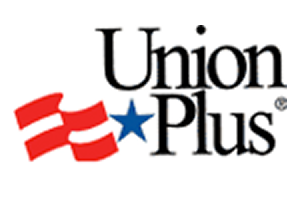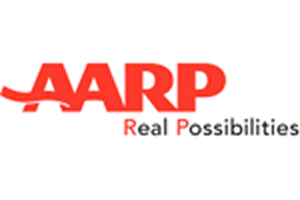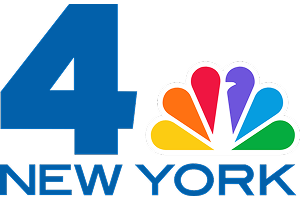800.696.9529





New York Bankruptcy Attorney

Thousands of New Yorkers must cope with the pressures of being deeply in debt. It is not uncommon for personal debt to spin out of control due to unexpected challenges such as job loss, illness, death of a spouse, or divorce. Those with overwhelming debt often also face late payment notices, overdrawn bank accounts, disconnection notices, and constant calls from debt collectors. Fortunately, there are options to help those in deep debt to manage the debt or eliminate a significant amount of the debt. Filing for bankruptcy allows individuals to have a fresh start. Filing for bankruptcy can allow you to completely eliminate most of your debt or it can allow you to restructure your debt to make payments to your creditors manageable.
Established in 1997 by New York bankruptcy lawyer Stephen Bilkis, the Law Offices of Stephen Bilkis & Associates, PLLC has earned a reputation among clients and peers for being professional and knowledgeable, and for providing superior legal representation. Whether we help you file for chapter 7 bankruptcy, file for chapter 13 bankruptcy, negotiate with a creditor, create an asset protection plan, stop unscrupulous debt collection efforts, or help you with other types of issues related to debt, our staff will be committed to working closely with you to find a solution tailored to your individual debt issues.
Bankruptcy is the process that is overseen by a bankruptcy trustee and that allows individuals to eliminate some or all debt or reduce debt payments. There are 2 main types of personal bankruptcy: chapter 7 liquidation and chapter 13 reorganization. Both types of bankruptcy have rules regarding which debts are covered, requirements for filings, and what property is exempt from creditors. While bankruptcy may be the best course to address your debt challenges, there are a number of other options to help manage debt problems.
Chapter 7 bankruptcy: Chapter 7 bankruptcy, 11 U.S. Code Chapter 7, is referred to as liquidation because the bankruptcy trustee will take some of your property and sell it. The trustee will then use the proceeds of selling your property to pay back some of the money that you owe your unsecured creditors. This does not mean that the bankruptcy trustee will take all of your property. The bankruptcy trustee will consider the amount of money you owe and the value of your property. Also, by state and federal law some of your property is exempt. For example, you will likely be able to keep your clothes, home furnishings and vehicle. Chapter 7 bankruptcy will give you a fresh start. Typically after a chapter 7 bankruptcy is discharged the only debt you will owe is secured debt.
Chapter 13 bankruptcy: Chapter 13 bankruptcy, 11 U.S. Code Chapter 13, is referred to as reorganization because the process requires you to pay all or most of your debt, but on a 3-5 year payment schedule that is manageable for you. In order to meet the requirements for Chapter 13 bankruptcy you must meet certain income thresholds and the amount of your debt must be below a statutory maximum. It is distinguishable from chapter 7 bankruptcy and for some people preferable to chapter 7 bankruptcy because you get to keep your property.
Chapter 11 bankruptcy. Chapter 11 bankruptcy is an option for businesses that is not available for individuals. However, if you have a small business that is experiencing financial difficulties you may be able to take advantage of relief provided by chapter 11 bankruptcy.
Debt Consolidation. Debt consolidation is the process of consolidating all of your debt through a debt consolidation loan. With a debt consolidation loan the monthly payment would be less than the total monthly payments you were paying on the individual loans and credit cards. The lower monthly payment will allow you to keep up with the payments and eventually pay off the total debt more quickly. In addition, having a single monthly payment is often more manageable than keeping up with multiple payments throughout each month with different due dates.
Debt Settlement. Debt settlement is the process of negotiating directly with your individual creditors to reduce the amount of unsecured debt you owe. The goal is for you to work with your creditors to set up a reasonable payment agreement based on your circumstances. The incentive to the creditor is to work with you to recoup at least a portion of the money owed and not risk losing it all should you decide to file chapter 7 bankruptcy.
Debt Relief. Debt relief is a comprehensive term to describe a number of different methods and services designed to help you manage debt that has become overwhelming. Common types of debt relief methods and services include debt settlement, debt negotiation and debt consolidation.
Garnishment. Garnishment involves a creditor obtaining the legal right to collect the debt you owe directly from your paycheck or from your bank account. When the money is “garnished” from your paycheck it is referred to as wage garnishment. Garnishment typically occurs once a creditor has gone to court and received a default judgment. Under New York law there are specific rules that creditors must follow when attempting to garnish wages and creditors are only allowed to garnish up to 10% of your gross weekly paycheck.
Default Judgment. If you have a loan or credit card debt that you fail to pay, the creditor has the option of seeking recourse by filing a civil complaint against you in court. If you fail to respond to the complaint or fail to appear in court for the hearing, the court will likely issue a judgment in favor of the creditor. Under these circumstances the judgment is referred to as a default judgment. Once a creditor has a default judgment against you the creditor can proceed to attempt to collect the entire amount of the default judgment from you through the garnishment process.
Foreclosure. If you fail to pay the mortgage on your home, co-op, or condominium according to its terms, the person or entity that owns your home may begin the process to foreclosure. Foreclosure is the legal process that allows the owner of your home loan, typically a bank, to sell your home and use the proceeds to satisfy the debt that you owe.
Credit Repair. The result of failing to pay debt in a timely manner is that your credit score will be damaged. Having a good credit score is critical to have access to credit cards, to securing a loan, to buying a car, and to buying a home. Having a poor credit score may even result in you being denied employment. Even if you are approved for a line of credit or a car loan, for example, with a poor credit rating your interest rate will be significantly higher than if your credit rating is favorable. There are, however, ways to rebuild your credit and improve your credit score by addressing errors on your report as well as addressing delinquencies, charge-offs, and public records.
Our office has extensive experience in working with individuals and small businesses facing bankruptcy and other financial challenges. We also represent trustees in trustee actions involving voidable transfers, preference actions and other issues that arise during the course of a bankruptcy proceeding. We are client-focused. We are committed to providing the best possible representation to help our clients overcome troubling legal issues. Contact us at 800.696.9529 to schedule a free, no obligation consultation regarding your case. A New York bankruptcy attorney at the Law Offices of Bilkis & Associates, PLLC will listen carefully to your wishes and goals and will respond with a realistic assessment and honest answers to your questions.
10 Reasons Why You Should Hire Stephen Bilkis & Associates
Contact Us
- 1 Free Consultation
- 2 Over 100 Years of Experience
- 3 Available 24/7
Fill out the contact form or call us at 800.696.9529 to schedule your free consultation.
Leave Us a Message












